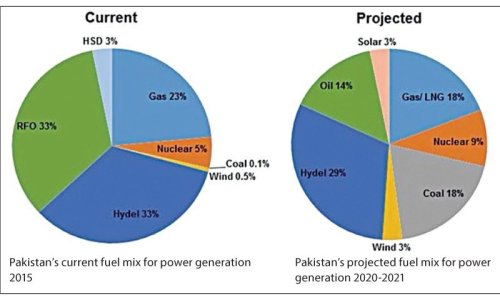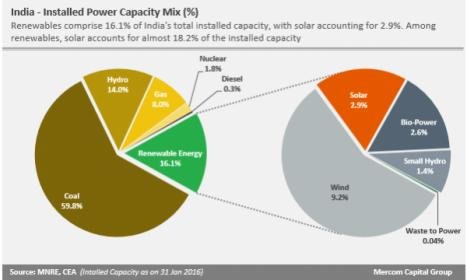Arham_PakFan
ODI Debutant
- Joined
- Nov 10, 2015
- Runs
- 12,858
Moody’s Investors Service has downgraded the outlook on Pakistan’s rating to negative from stable and affirmed the ‘B3’ local and foreign currency long-term issuer and senior unsecured debt ratings.
The decision to change the outlook to negative is driven by Pakistan’s heightened external vulnerability risk, added the ratings agency.
“Foreign exchange reserves have fallen to low levels and, absent significant capital inflows, will not be replenished over the next 12-18 months,” stated Moody’s. “Low reserve adequacy threatens continued access to external financing at moderate costs, in turn potentially raising government liquidity risks.”
Pakistan trying to ink fresh LNG deals at lower rates
A rating is Moody’s opinion of the credit quality of individual obligations or of an issuer’s general creditworthiness. Investors use ratings to help price the credit risk of fixed-income securities they may buy or sell.
The development comes as a blow to Pakistan where economic managers are facing a headache in taming a bulging import bill that is eating away at the country’s foreign exchange reserves. From almost $19.46 billion held by the State Bank of Pakistan (SBP) in October 2016, foreign exchange reserves dropped 48.3% to $10.07 billion on June 8, 2018. The decline comes at a time when the import bill peaked to a record high of $5.8 billion in May, increasing the already swelling trade and current account deficits.
The fragile external account position has already forced the SBP’s hand to let go off the Pakistani rupee that has now weakened over 15% in the last seven months after three separate rounds of devaluation.
While the previous government seemed to have put all its eggs in the China-Pakistan Economic Corridor (CPEC) – the multi-billion dollar project encompassing infrastructure and energy sector – its debt affordability due to low tax revenue and failure to attract sufficient capital has made it a particularly vulnerable economy.
World Bank sees Pakistan’s economy slowing next year
Moody’s acknowledged Pakistan’s robust growth potential, but pointed out that these strengths balance the country’s fragile external payments position as well as the “very weak” government debt affordability.
“The decision to affirm the B3 rating reflects Pakistan’s robust growth potential, supported by ongoing improvements in energy supply and physical infrastructure, which are likely to raise economic competitiveness over time.
“These credit strengths balance Pakistan’s fragile external payments position and very weak government debt affordability owing to low revenue generation capacity.”
The ratings agency also expects Pakistan’s external account to remain under significant pressure. “The coverage by foreign exchange reserves of imports will likely fall further from already low levels, while coverage of external debt payments due will weaken from currently adequate levels.
“In turn, higher foreign currency borrowing needs, in combination with the low levels of foreign exchange buffers, risks weighing on the ability of the government to access external financing at moderate costs.”
Shell plans to invest $15-16m to meet growing demand
Continued growth in imports – driven by demand for capital goods under CPEC, higher fuel prices and robust household consumption – will prevent a significant narrowing of the current account deficit. Although exports have picked up since the start of 2018, growing around 10-15% year-on-year in US dollar terms, they only amount to half the level of goods imports.
“Unless capital inflows increase significantly, Moody’s does not expect official foreign exchange reserves to replenish from their current low levels. Under baseline projection, the import cover of reserves will likely fall to around 1.7-1.8 months over the next fiscal year, below the adequacy level of three months generally recommended by the International Monetary Fund.”
Tax amnesty scheme
Moody’s said it expects the government’s tax amnesty scheme, which expires in June 2018, to have a modest impact of around $2-3 billion in foreign exchange inflows.
“Second, the coverage by foreign exchange reserves of external debt payments due is weakening, pointing to further external vulnerability risks. With a significant rise in equity inflows unlikely, Moody’s expects Pakistan’s external financing gap to be met by increased foreign currency borrowing, mainly by the government.
“While policymakers have started to respond to the external pressures, the policy tools available are politically challenging and would likely have a negative economic impact. Moody’s expects these measures to contribute to somewhat lower growth, at 5.2% on average over the next two fiscal years, from an expected 5.8% in FY18, and higher inflation at 7% in FY19, from around 4% in FY18. Further currency depreciation, higher policy rates, fiscal tightening, and/or higher regulatory duties would likely weigh further on growth and raise inflation above Moody’s current projections.
“Like many of its South Asian neighbours, Pakistan is also vulnerable to climate change risk. The magnitude and dispersion of seasonal monsoon rainfall continues to influence agricultural sector growth and rural household consumption. As a result, both droughts and floods can create economic and social costs for the sovereign.”
Moody’s said the negative outlook signals that a rating upgrade is unlikely. The outlook would likely be changed to stable if external vulnerability risks decreased materially and durably, including through policy adjustments that strengthen the external payments position. A resumption of fiscal consolidation pointing to a meaningful reduction in the debt burden would also be credit positive, added Moody’s.
https://tribune.com.pk/story/1738734/1-moodys-downgrades-pakistans-rating-outlook-negative/
The decision to change the outlook to negative is driven by Pakistan’s heightened external vulnerability risk, added the ratings agency.
“Foreign exchange reserves have fallen to low levels and, absent significant capital inflows, will not be replenished over the next 12-18 months,” stated Moody’s. “Low reserve adequacy threatens continued access to external financing at moderate costs, in turn potentially raising government liquidity risks.”
Pakistan trying to ink fresh LNG deals at lower rates
A rating is Moody’s opinion of the credit quality of individual obligations or of an issuer’s general creditworthiness. Investors use ratings to help price the credit risk of fixed-income securities they may buy or sell.
The development comes as a blow to Pakistan where economic managers are facing a headache in taming a bulging import bill that is eating away at the country’s foreign exchange reserves. From almost $19.46 billion held by the State Bank of Pakistan (SBP) in October 2016, foreign exchange reserves dropped 48.3% to $10.07 billion on June 8, 2018. The decline comes at a time when the import bill peaked to a record high of $5.8 billion in May, increasing the already swelling trade and current account deficits.
The fragile external account position has already forced the SBP’s hand to let go off the Pakistani rupee that has now weakened over 15% in the last seven months after three separate rounds of devaluation.
While the previous government seemed to have put all its eggs in the China-Pakistan Economic Corridor (CPEC) – the multi-billion dollar project encompassing infrastructure and energy sector – its debt affordability due to low tax revenue and failure to attract sufficient capital has made it a particularly vulnerable economy.
World Bank sees Pakistan’s economy slowing next year
Moody’s acknowledged Pakistan’s robust growth potential, but pointed out that these strengths balance the country’s fragile external payments position as well as the “very weak” government debt affordability.
“The decision to affirm the B3 rating reflects Pakistan’s robust growth potential, supported by ongoing improvements in energy supply and physical infrastructure, which are likely to raise economic competitiveness over time.
“These credit strengths balance Pakistan’s fragile external payments position and very weak government debt affordability owing to low revenue generation capacity.”
The ratings agency also expects Pakistan’s external account to remain under significant pressure. “The coverage by foreign exchange reserves of imports will likely fall further from already low levels, while coverage of external debt payments due will weaken from currently adequate levels.
“In turn, higher foreign currency borrowing needs, in combination with the low levels of foreign exchange buffers, risks weighing on the ability of the government to access external financing at moderate costs.”
Shell plans to invest $15-16m to meet growing demand
Continued growth in imports – driven by demand for capital goods under CPEC, higher fuel prices and robust household consumption – will prevent a significant narrowing of the current account deficit. Although exports have picked up since the start of 2018, growing around 10-15% year-on-year in US dollar terms, they only amount to half the level of goods imports.
“Unless capital inflows increase significantly, Moody’s does not expect official foreign exchange reserves to replenish from their current low levels. Under baseline projection, the import cover of reserves will likely fall to around 1.7-1.8 months over the next fiscal year, below the adequacy level of three months generally recommended by the International Monetary Fund.”
Tax amnesty scheme
Moody’s said it expects the government’s tax amnesty scheme, which expires in June 2018, to have a modest impact of around $2-3 billion in foreign exchange inflows.
“Second, the coverage by foreign exchange reserves of external debt payments due is weakening, pointing to further external vulnerability risks. With a significant rise in equity inflows unlikely, Moody’s expects Pakistan’s external financing gap to be met by increased foreign currency borrowing, mainly by the government.
“While policymakers have started to respond to the external pressures, the policy tools available are politically challenging and would likely have a negative economic impact. Moody’s expects these measures to contribute to somewhat lower growth, at 5.2% on average over the next two fiscal years, from an expected 5.8% in FY18, and higher inflation at 7% in FY19, from around 4% in FY18. Further currency depreciation, higher policy rates, fiscal tightening, and/or higher regulatory duties would likely weigh further on growth and raise inflation above Moody’s current projections.
“Like many of its South Asian neighbours, Pakistan is also vulnerable to climate change risk. The magnitude and dispersion of seasonal monsoon rainfall continues to influence agricultural sector growth and rural household consumption. As a result, both droughts and floods can create economic and social costs for the sovereign.”
Moody’s said the negative outlook signals that a rating upgrade is unlikely. The outlook would likely be changed to stable if external vulnerability risks decreased materially and durably, including through policy adjustments that strengthen the external payments position. A resumption of fiscal consolidation pointing to a meaningful reduction in the debt burden would also be credit positive, added Moody’s.
https://tribune.com.pk/story/1738734/1-moodys-downgrades-pakistans-rating-outlook-negative/










